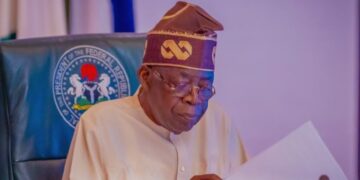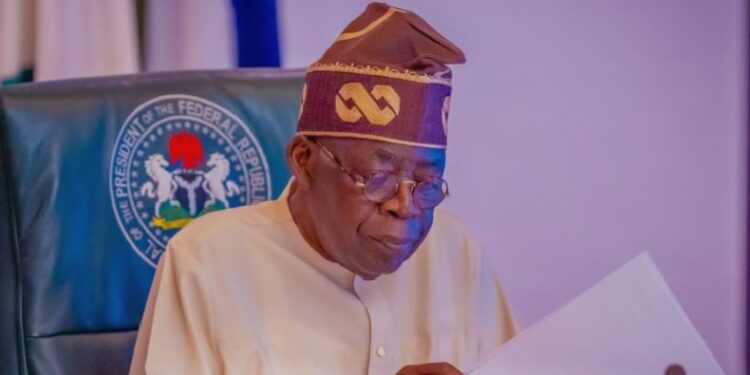By Enyichukwu Enemanna
Nigerian President has maintained his stand that the controversial tax reform bill currently before the National Assembly will pass legislative process and will not be withdrawn despite speculations that it is targeted against the country’s northern region.
Bola Tinubu had on Thursday been advised by the National Economic Council (NEC), a body comprising the 36 state governors and chaired by the Vice President to withdraw the tax reform bills which have passed first reading in the senate.
The bills had made it to the National Assembly following the approval of the Chairman of the Presidential Fiscal Policy and Tax Reforms Committee, Taiwo Oyedele.
The reform proposals have also been rejected by northern leaders who alleged that it is targeted against them.
But Tinubu in a statement on Friday by his Special Adviser on Information and Strategy, Bayo Onanuga ruled out the withdrawal of the bills.
According to the statement, President Tinubu “received the National Economic Council’s recommendation that the tax reform bills already sent to the National Assembly be withdrawn for further consultation.”
The Nigerian leader also commended the National Economic Council members, especially Vice President Kashim Shettima and the 36 state governors, for their advice.
The statement reads further, “He believes that the legislative process, which has already begun, provides an opportunity for inputs and necessary changes without withdrawing the bills from the National Assembly.
“While urging the NEC to allow the process to take its full course, President Tinubu welcomes further consultations and engagement with key stakeholders to address any reservations about the bills while the National Assembly considers them for passage.
“When President Tinubu set up the Presidential Committee on Tax and Fiscal Policy Reform in August 2023, he had only one objective: to reposition the economy for better productivity and efficiency and make the operating environment for investment and businesses more conducive. This objective remains more critical even today than ever before,” the statement read.
Governors from the 19 Northern states, along with traditional rulers and stakeholders from the region at a meeting earlier in the week in Kaduna voiced their opposition to the bills especially the portion on the derivation-based model of Value Added Tax (VAT) distribution among the federating units in the country.
The Northern Governors Forum in explaining reason behind the rejection of the bills said, “This is because companies remit VAT based on the location of their headquarters and tax office, rather than where the services and goods are consumed. In view of the foregoing, the forum unanimously rejects the proposed Tax Amendments and calls on members of the National Assembly to oppose any bill that could jeopardise the well-being of our people,” said Inuwa Yahaya, who also serves as the chairperson of the forum.
“For the avoidance of doubt, the Northern Governors’ Forum is not opposed to policies or programs aimed at fostering national growth and development. However, the forum calls for equity and fairness in implementing all national policies and programs to ensure that no geopolitical zone is short-changed or marginalised,” he said further.
The Northern Nigeria Nigeria has a comparative advantage in terms of population and the number of local governments compared to other regions of the country but it has been plagued by low productivity.
Under Section 40 of the VAT Act, revenue is currently allocated as follows: 15% to the Federal Government, 50% to the States and FCT, and 35% to Local Governments, with a derivation principle ensuring at least 20% is distributed based on where the VAT is generated.
Other factors influencing distribution include 50% allocated equally and 30% based on population.


































